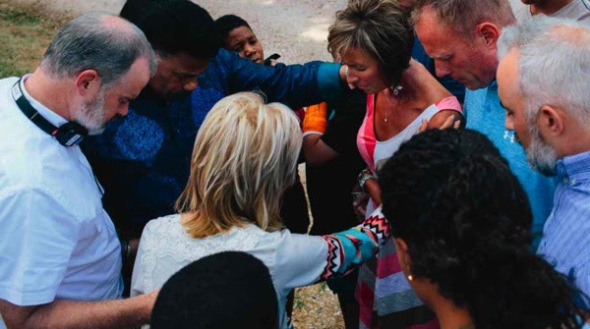Inspirations|April 10, 2014 11:38 EDT
Speaking in Tongues Proven by Brain Research? New Study Shows 'Changing Brain Structure' During Moments of Worship (VIDEO)

Christian scholar/theologian N.T. Wright and Dr. Andrew Newberg help describe the proven physical changes people endure when worshiping God and speaking in tongues by monitoring the brain and its patterns.
It has been known that music greatly affects your emotions. Research shows that brain waves vibrate with the beat of music. It has been shown that listening to pleasant music boosts your serotonin, which is the brain's chemical responsible for good feelings. Listening to music also engages your hippocampus, the bit of your brain that handles long-term memory storage.
Theologian Wright told Relevant Magazine when humans get into the habit of singing Psalms they are "changing the brain structure" and human "memory."
"When you sing you are using your body as a musical instrument, and when you sing words which are about God and the world and God's rescue of us, and God's grace and mercy and love, you are actually turning your body into a kind of resonating echo chamber of all that meaning," he explained.
He stated that the Psalms is the very same prayer book that Jesus Himself used, as shown in the New Testament, when people say or sing them it enables them to "stand at the intersection between God's time and space, and God's purpose for his own creation."
In another similar report, Dr. Newburg performed a study at the University of Pennsylvania to examine people who speak in tongues with MRI. The study showed that people's brains that were speaking in the heavenly language, did not show their speech center part of the brain working. Remarkably, he discovered that what happened to them neurologically looks a lot like what they claim is happening to them spiritually.
Newberg emphasized that while neuro-theology would not provide ultimate findings about things like the existence of a higher power, it will provide a deeper understanding of what it means for a person to exercise religious practices.












